On Cuba, Sanctions and Really Smart Tour Guides
By William J. Murray, Chairman
Almost every adult in Cuba has a college education, provided at no cost. The result of this level of education for all became evident to me when my wife and I recently took an evening tour of Havana. Our tour guide, Susanne, was a lawyer fluent in Spanish, German and English. Her income as a lawyer would be the equivalent of about 300 pesos, or 15 Cuban CUC a month, which is less than $25. As a tour guide she may receive twice that in tips in one day.
A CUC, or convertible Cuban peso, currently trades at one to 21 pesos, and has about the value of one Euro or $1.13. The CUC was invented by Fidel Castro as an instrument for exchange for hard currency, but has become the true currency of the “affluent” as very little can be purchased in Cuba for pesos.
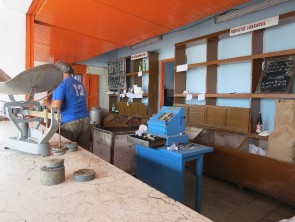
Rationing stores exist for Cubans unable to obtain CUC. Flour, rice, beans, unrefined sugar, eggs, potatoes and bananas are available to all, and milk for children up to 7 years old. Products are sold far below the cost of production, which makes increased production impossible.
It is not unusual in Cuba to have a lawyer, teacher or other professional as a tour guide. The next day on a city tour, a different tour guide, this time a man, was also a lawyer and frankly admitted to us that his pay in the profession was so bad he could not care for his family. He makes in a day or two in CUC tips more than he would earn in a month in Cuban pesos as a lawyer.
Two lawyers in a row as tour guides? Surely not three! No, our third tour guide for a two-day Jeep tour was an aviation engineer with a commercial pilot’s license. Besides his native Spanish, he spoke fluent English and Russian, having studied aviation engineering in Russia for six years. An intelligent fellow, over a period of six months he had self-taught himself English to a degree sufficient to conduct tours. He was also one of the very few Cubans to have a driver’s license, as only about 5 percent of Cubans have access to a car.
Official Cuban communist dogma, just as it was in the former Soviet Union, holds that the state is responsible for transportation between home and work, and thus private transportation is not needed. A new moderately priced Chinese car with taxes imposed would cost more than $50,000, unimaginable for most Cubans.
The 65,000 antique American cars in the streets of Cuba are for the most part for the tourist trade, which is now the No. 1 economic activity in Cuba.
New cars are imported only for officials and rental car agencies. Those on the inside can obtain a used rental car after it hits the 75,000-mile mark or so. During rush hour in Havana, there is hardly room to breathe on the buses, which China has loaned the Cuban government money to buy from Chinese companies.
My true mission in Cuba was not to take tours, but to visit with pastors about a program of the Religious Freedom Coalition that perhaps could be implemented in Cuba if the facilities were available. I took a 20-minute ride from Old Havana to a church in a poorer area, at a cost of 25 CUC, or nearly double the monthly wages of the lawyers I had as tour guides. My wife and I also rode in a privately owned 1979 Soviet-era Lada, which I was told would sell for about $18,000. The brakes worked only sometimes, and there were, of course, no seat belts.
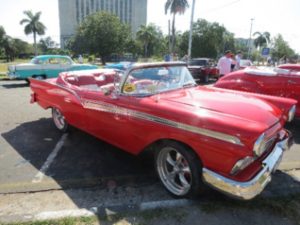
Most of the bodies of “Old Timers” as they are called are in mint condition for tourism use, but most engines and transmissions are Russian or Chinese replacements.
The Lada, like the Mosvitch, was built for the masses. In 1975 a Mosvitch 412 sold for about $5,000 in Russia when purchased, but as much as $20,000 when one day old. Why? Because delivery of a new car could take years. An old Soviet era joke goes like this: A man puts down $10,000 cash for a new car and is informed he can pick it up in 10 years. The man asks if he can pick it up in the morning or evening, and the salesman responds, “What difference would it make 10 years from now?” To which the customer replies, “The plumber is coming in the morning.”
As I outlined in my latest book, “Utopian Road to Hell,” all Communist societies, to “please the masses,” price goods below cost. But this increases demand beyond capacity, and the inevitable result is the bankruptcy of the nation. Cuba has survived with bailouts, first by the Soviet Union after that nation collapsed in 1991 by the Hugo Chavez-inspired socialist government of Venezuela, which now has its own citizens eating from garbage cans.
As can been seen by the red flag of China flying on oil rigs in Cuba, the latest bailout comes from China, but at a heavy price. The Chinese have loaned the Communist government of Cuba billions or dollars that must now be paid back in oil pumped out of the Gulf of Mexico, something Cuba could have done on its own decades ago, if all available capital had not been used for universal education, free medical care and subsidized food. The thought that capital improvement and economic growth would produce education and jobs is not a part of the utopian communist thought process.
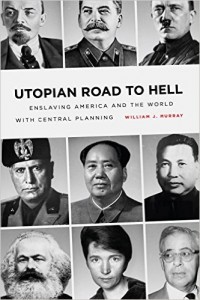 In Cuba, there is no spicy Cuban food such as that found in Miami, where 2 million Cubans live. The food is horribly bland, and finding even pepper at a restaurant is a challenge. Cubans under the age of 60 really believe that Cuban food has always been tasteless, and when told about the Cuban food in Florida they shrug it off, saying that Cubans living there must have learned to spice up food from Mexican-Americans.
In Cuba, there is no spicy Cuban food such as that found in Miami, where 2 million Cubans live. The food is horribly bland, and finding even pepper at a restaurant is a challenge. Cubans under the age of 60 really believe that Cuban food has always been tasteless, and when told about the Cuban food in Florida they shrug it off, saying that Cubans living there must have learned to spice up food from Mexican-Americans.
Traditional Cuban foods have been lost to five decades of rationing caused by fumbling Communist Party rule and American sanctions. Those sanctions, sadly, gave the Castro brothers their excuse for the extreme poverty caused by Communism. The American sanctions against Cuba, designed to get rid of the Castro brothers, had the same effect as sanctions against North Korea, the Sudan and other nations – sanctions helped to keep the despots in power by giving them someone else to blame for the horrid conditions in which the people had to live, under their abusive economic systems.
It’s a different case in Venezuela, where people who were well off just 20 years ago are now eating out of garbage cans thanks to the socialism imposed by Chavez. That socialist government, however, does not have American sanctions to blame for their problems as do the Communists of Cuba.
Cuba has their version of Obamacare in spades, and the Cuban people love it without understanding what they are getting. Like many of America’s veterans, the Cuban people actually believe they are receiving state of the art medical care. Even Cubans I met who were skeptical of the socialist government admired the free education and medical care. For the most part, those I spoke with wanted to get rid of the “bad parts” of socialism, such as the poor incomes and lack of products, but keep the good parts such as free education through college level and free medical care.
There is no understanding that the “good parts” are the reason for the “bad parts.” When a vast share of the economy is focused on “free stuff,” and there is no freedom for supply and demand to cause an increase in production, the economy becomes stagnant and poisonous.
Then I got a headache. It was not a bad headache, but bothersome, and in the past some like this one had developed into migraines. I had forgotten to bring aspirin or some other minor pain relief, so I went to a pharmacy in one of the better off neighborhoods to buy some. This is how the conversation went except in Spanish:
Me: “I want a bottle of aspirin.”
Pharmacist: “For something like a headache?”
Me: “Yes”
Pharmacist: “We have nothing for a headache now. I am sorry.”
Fortunately for me, a double cappuccino cured the headache. (At a pharmacy at the Havana airport I also tried to buy aspirin or its equivalent to no avail.)
No number of cappuccinos will cure the headache the Cuban people are suffering from today. The U.S. sanctions, which help the Communist Party retain power and harm the Cuban people, will continue. The Chinese National Oil Company (CNOC) will continue to pump more and more oil out of the Gulf of Mexico. The Chinese are there for oil, not as ideological brothers of the Communist Party in Cuba. Russian businesses are happy to sell products to Cubans, but the giveaway days ended long ago, in 1991.
Cuba, with just 11 million people and little or no infrastructure, is even further behind economically in the world than either Russia or China were before they opened to the West. It was a long, uphill struggle for Russia and China to modernize and recover from full-blown socialist systems.The tourist district of Old Havana, now a destination for cruise ships, is dilapidated. Water is delivered by truck to businesses, which are almost all owned by the government. One of the two largest tour companies is owned by the Cuban Army, and the other by the Ministry of Tourism. The lack of understanding in the tourist industry reminds me a lot of Intourist in the days of the old Soviet Union. Most tourist don’t want to see the boat Castro landed in with his 82 men or the museum to Che Guevara. The Communists can’t understand that.
There are financially well off people in Cuba today, those who have learned to game the system, and many of them have cars. Some have rented upstairs apartments in Old Havana and opened private restaurants. There are entrepreneurs, and if unrestrained they could help to better Cuba.
Much of that change could be spurred by a financial and trade opening, much as was done in China. Will that happen? Not as long as the nest of neocon spiders led by Sen. John McCain run foreign policy in Washington, D.C. No one in Cuba has a gun, and there are no real elections. The concept is that by punishing the Cuban people economically they will overthrow the Castro government. This idea is so ridiculous it would be laughable if not for the misery it has caused.

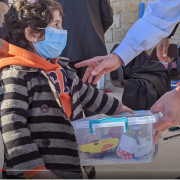
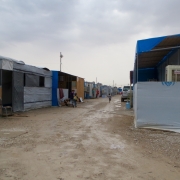

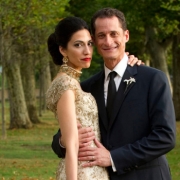

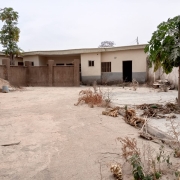



An excellent article. Your book is also one of the all-time great books on totalitarianism. At first, I thought, I’ve read all this before. But you took it all to a whole new level.
Thank you for your comments.
You say, no one in Cuba has as gun. Their oppressors have plenty of guns to keep the people in line.
M.K.
We have vile threats posted at our site and all comments have to be moderated. As this is done by volunteers there are sometimes delays in posting.
This post was approved by a volunteer … If it was approved later than you thought it should have been I am sorry. We don’t have a FoxNew type staff to watch these 24/7.
Your comment is awaiting moderation. I will remember that when you ask for another donation.